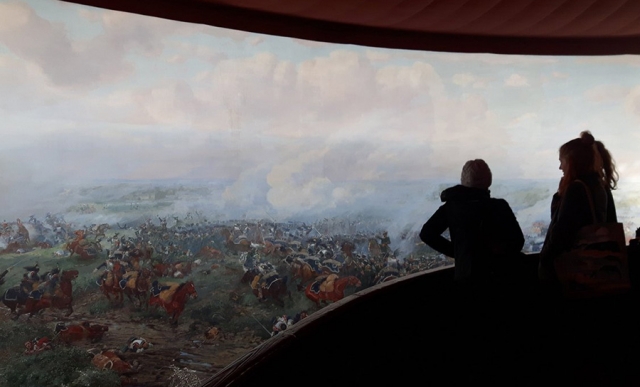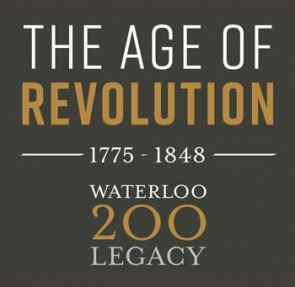The Age of Revolutions – The Residential
Teacher Fellowships programme

Somewhere on a battlefield in Belgium in February a rebel group comb the countryside, gather intelligence (knowledge), share expertise and plot their future actions.
Who are they?
What are they really doing?
WHAT ARE THEIR INTENTIONS?!
Actually it turns out they are with the Historical Association, and they are a bunch of history teachers and trainers using their half-term to learn about the 19th century.
Why Belgium? I hear you all say.
Well, the Historical Association has teamed up with Waterloo200 to put together a Teaching Fellowship that explores the ‘Age of Revolutions’ (1755-1848) through the events, actions and activities of the people involved with key events of the 19th century that led to fundamental changes and revolution (sometimes).
According to Karin Doull, Principal Lecturer in Primary History at the University of Roehampton and the primary lead for the Fellowship course:
“The Napoleonic Wars shaped their age: children were threatened with 'Boney' long after he had gone. Images of the time in words and pictures show the importance of the military both in polite and less salubrious company. Some of England’s most enduring heroes, Nelson at Trafalgar and Wellington at Waterloo, were created at this time. The battles of this period pepper our culture often without us being aware of it, through place-names or recipes such as chicken Marengo. It was in the Peninsular War that the term 'guerrilla' was coined to describe how the Spanish fought against Napoleon's armies. Had Hitler paid more attention to this period of history the battle for the Eastern Front would never have been considered.
“The upheavals generated by the prolonged military conflict led also to a series of popular movements that reflected great social changes. Across continents ordinary people began to demand a say in how they were governed. Many of the soldiers who fought were volunteers linked to local geographical areas. The developing political consciousness also had local roots and manifestations.”
Exploring Waterloo
So with that in mind, 27 people will get to spend three wet and windy days of their own time exploring the Waterloo battlefield, and learning about how that pivotal event can help set them on their road to a brilliant teaching fellowship and a level of expertise that will change theirs and other students’ lives, influence their peers and leave them forever enriched.
Of course the glamorous trip to an historic battlefield is not the only part of the Fellowship. Those taking part will still have to attend further development days, carry out research, develop materials and work really hard before it is all complete. During the next three days that hard work will begin!
Sounds rather good fun actually – I wish I was there – but instead I will follow their activities on Twitter #HATF and wait to see the brilliant resources they develop. Vive La Revolution! (wrong event I know, but you get our point).


